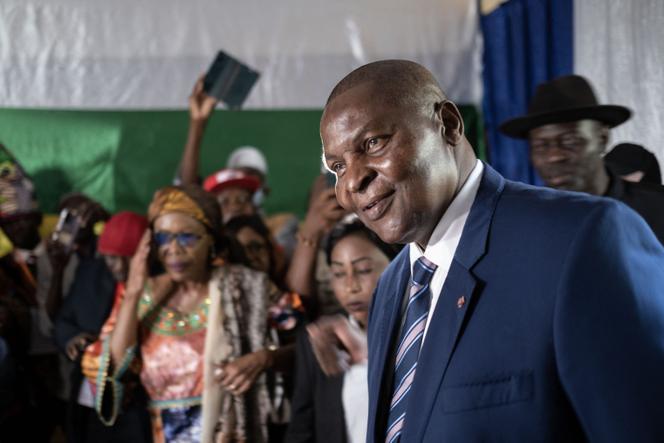


The small classroom at Bangui's Boganda high school, transformed into a polling station, was packed to the rafters. In the horde of sycophants jostling to appear in the photo, two advisers came to blows, but nothing seemed to disturb the serenity of the Central African president. Protected by Russian and Rwandan guards, Faustin-Archange Touadéra smiled politely for the cameras and slipped his ballot into the box.
He has every reason to be confident that his draft constitution – which was put to a referendum on Sunday, July 30 – will remove the restriction on presidential term limits and allow him to stand for re-election as many times as he likes. Western institutions, once so critical of him, have fallen silent. In a voice so calm and soft that you have to strain your ear to make out his words, the president thanked the voters and took one last look at the courtyard of Boganda high school, which he attended in his youth.
The shy boy from the working-class neighborhood of Boy-Rabe, in the north of the Central African capital, has become a fearsome politician. His new constitution was overwhelmingly approved: According to the results presented by the National Elections Authority on Monday, August 7, the "yes" party won with 95.27% of the vote, with a turnout of 61.10%, despite the opposition boycott. Nothing now stands in the way of Touadéra remaining in power. Yet, at the outset, few would have bet on him.
Born in 1957 to a chauffeur father and a housewife mother, the president was the eldest of 10 siblings. As a child, he "clung" to the school and church benches, while his classmates led a wild life in the rough streets of Bangui. "He was the smallest but the brightest, and also the best at checkers," said a friend. His mathematical abilities impressed his teachers, who encouraged him to continue his studies in Côte d'Ivoire, then in France, in Lille, where he obtained his first doctorate, followed by a second at the University of Yaoundé, in Cameroon.
Returning to his homeland, the future leader climbed the ladder at Bangui University, rising to the position of rector, which he held from 2005 to 2008. He trained generations of executives and forged lasting friendships. Charming, methodical and silent, Touadéra was the most surprised – according to those close to him – when, in 2008, President François Bozizé (in office from 2003 to 2013) appointed him prime minister in an attempt to calm the deep social crisis shaking the country. "At cabinet meetings, he would only open his mouth to say 'yes, mr president,'" said a close associate. "He was nicknamed 'the carp' but, in reality, it was he who informed the head of state on all subjects, with the patience of a teacher towards his pupil."
You have 69.55% of this article left to read. The rest is for subscribers only.
